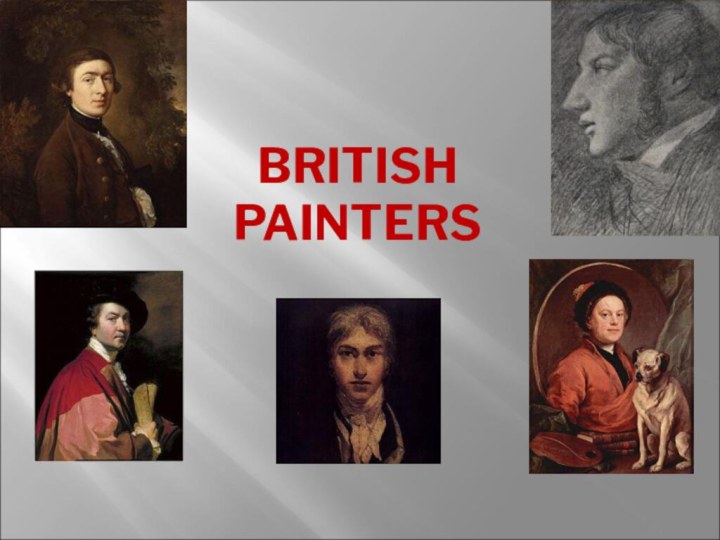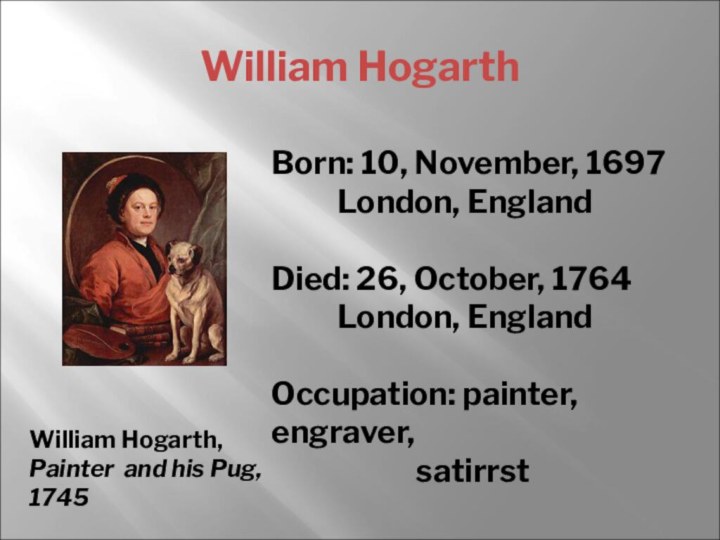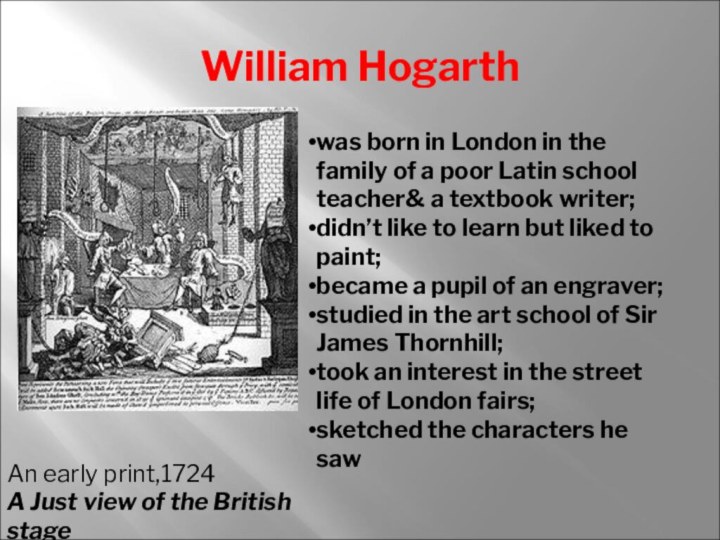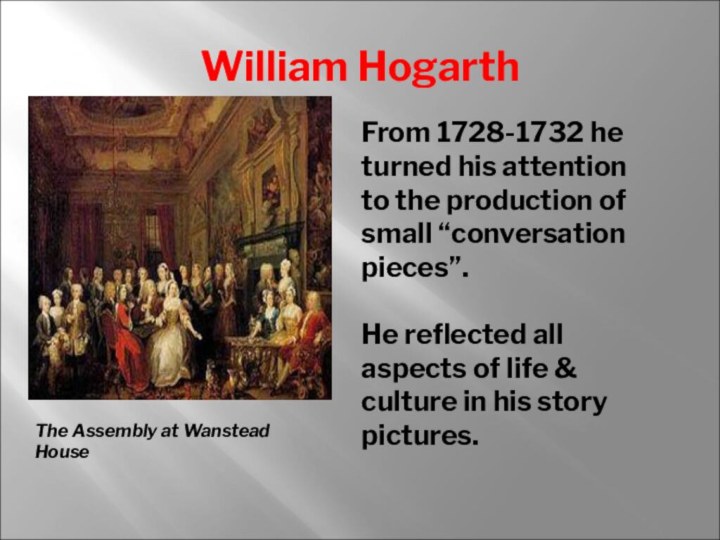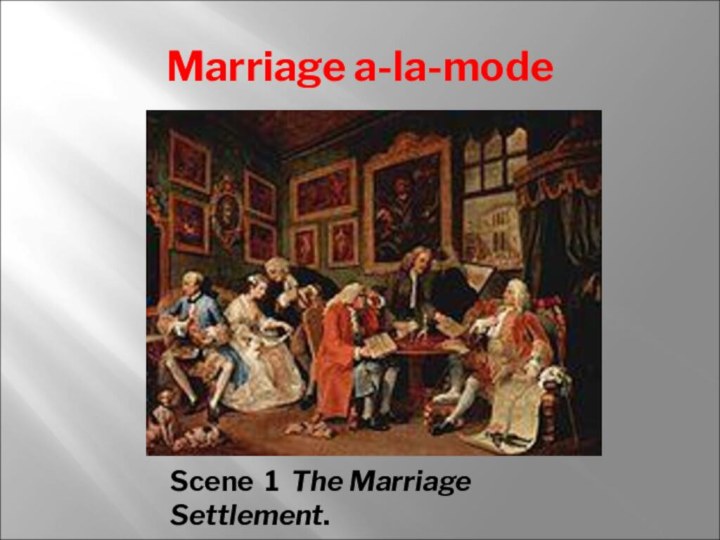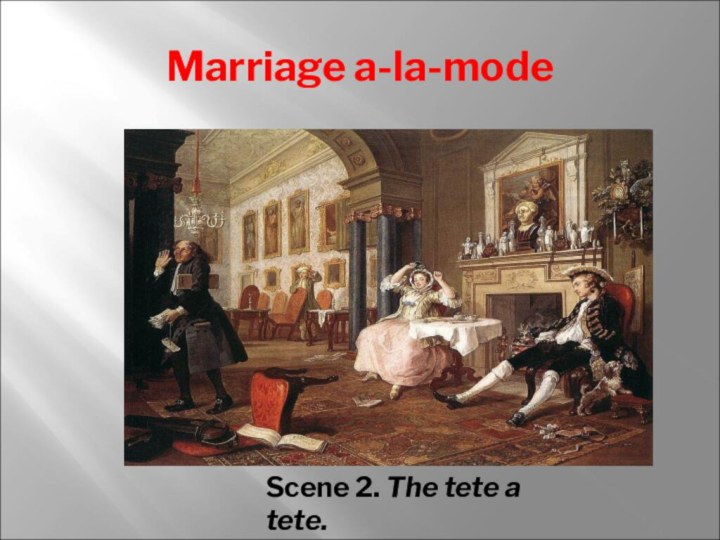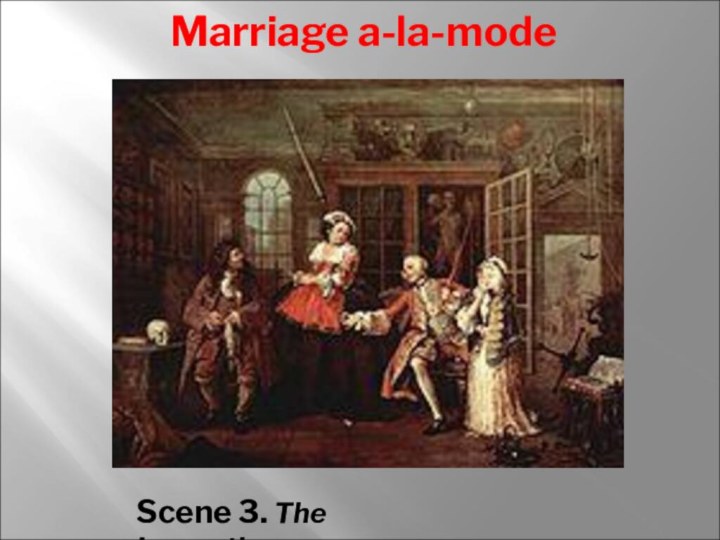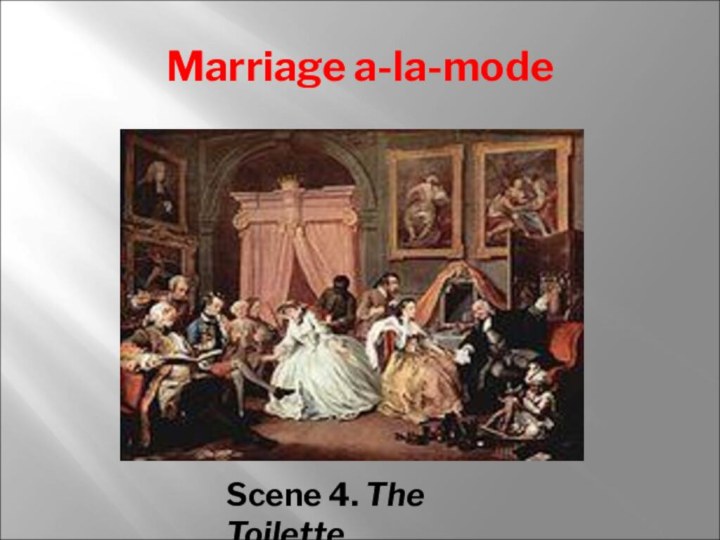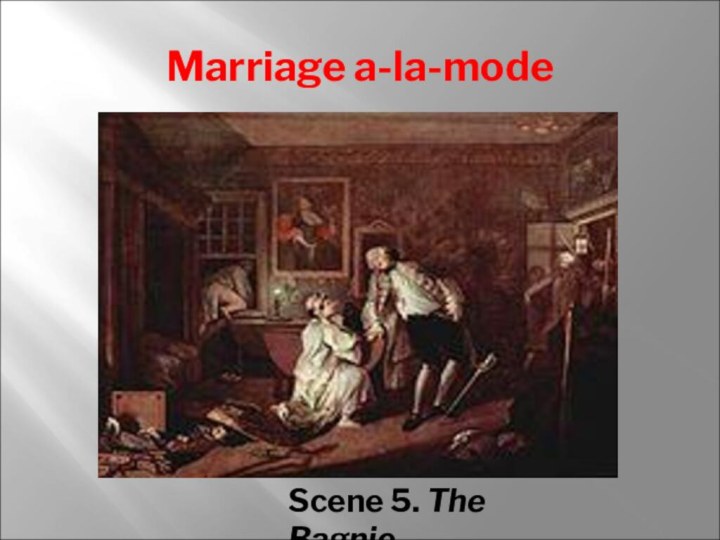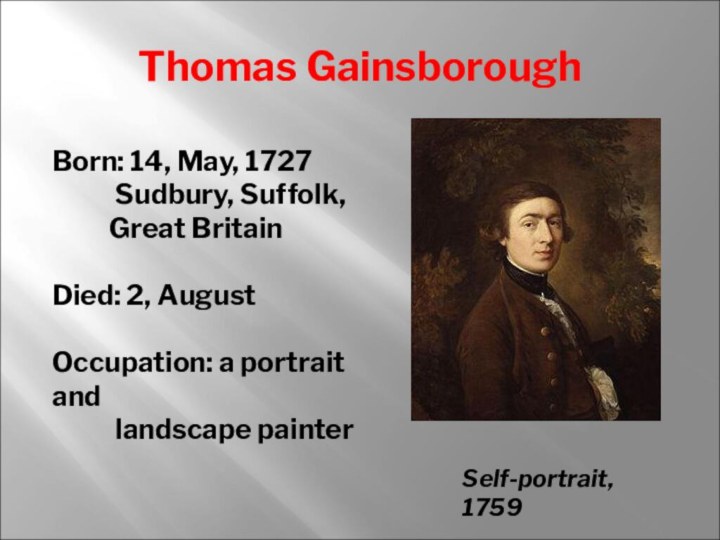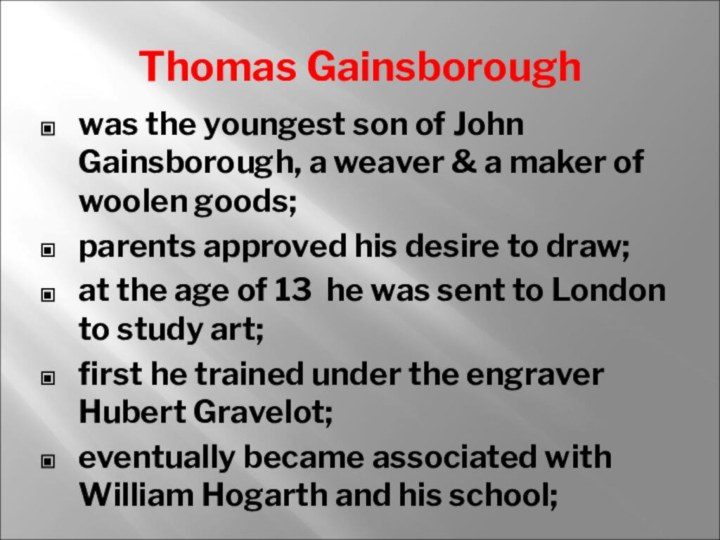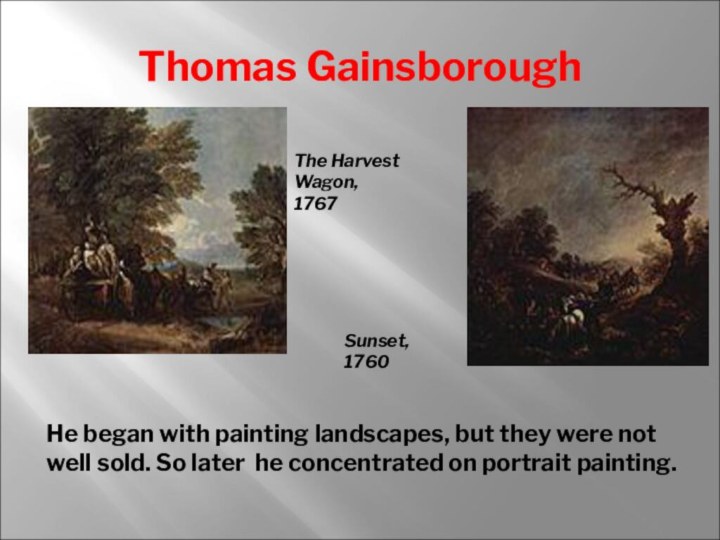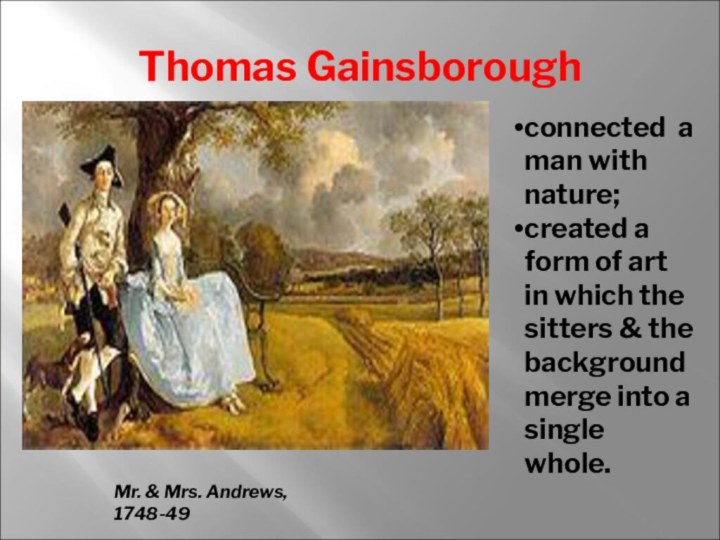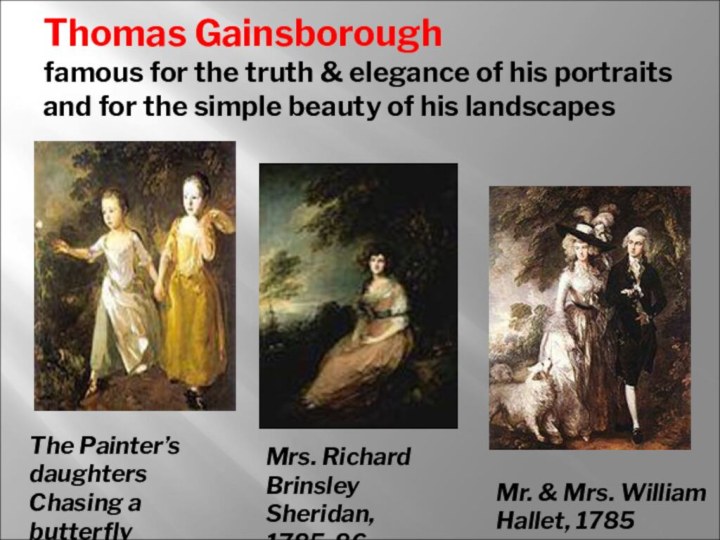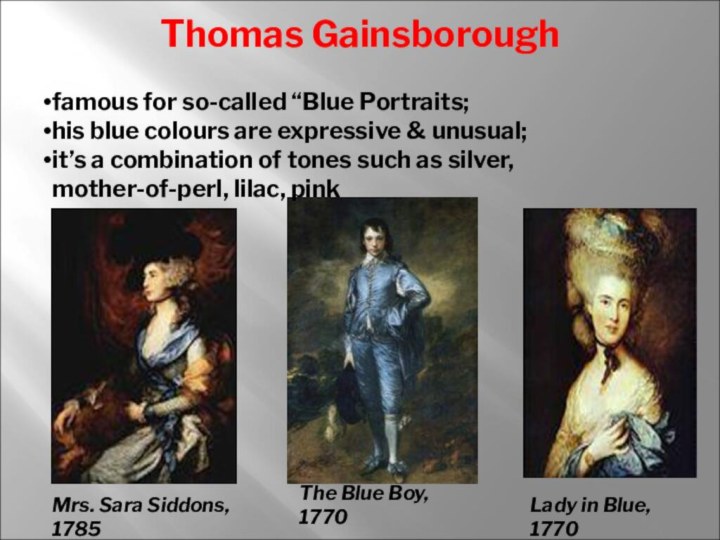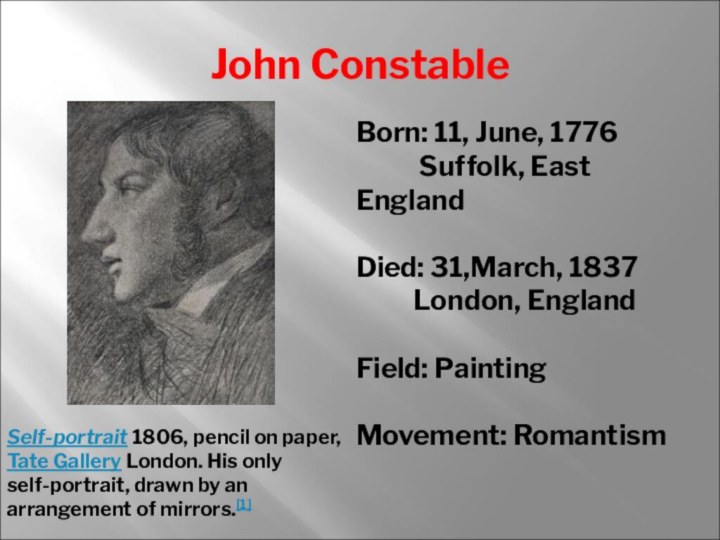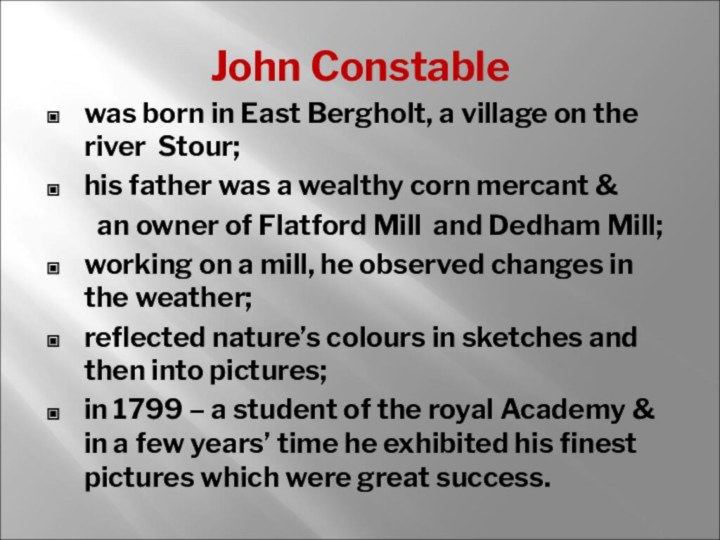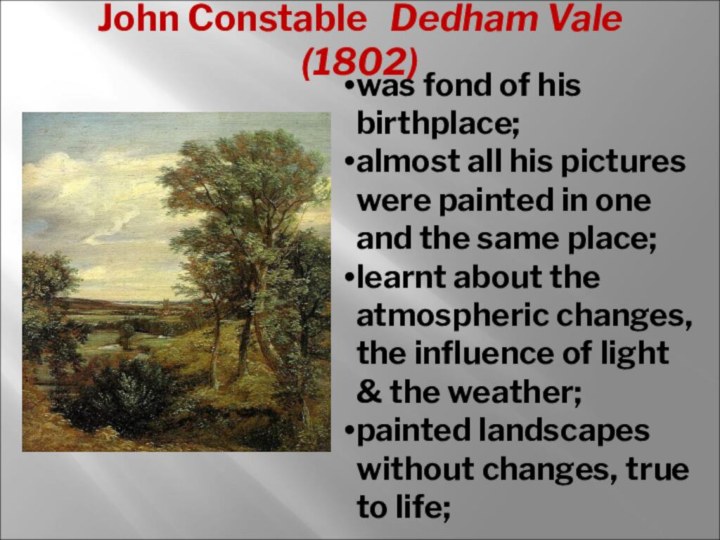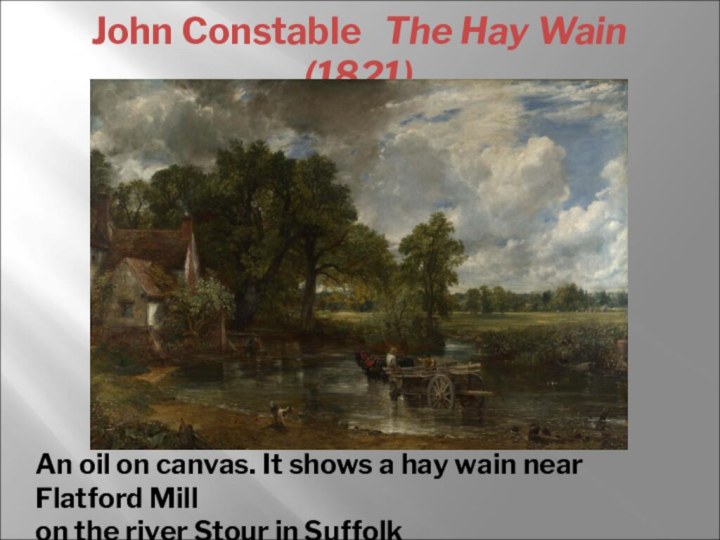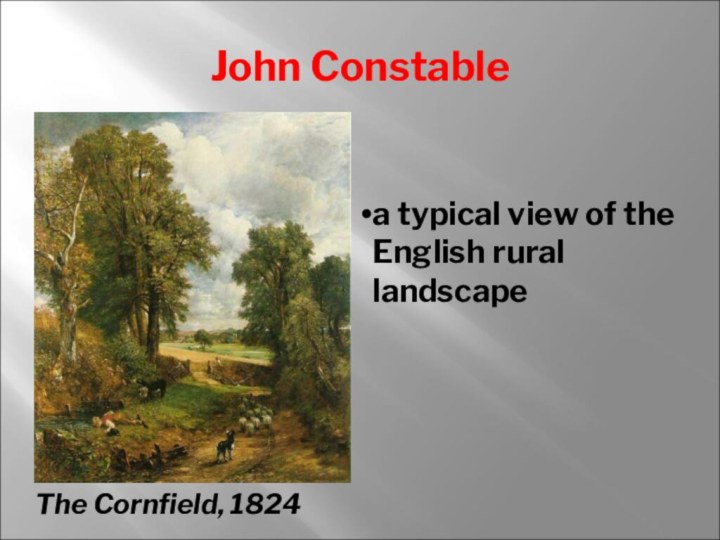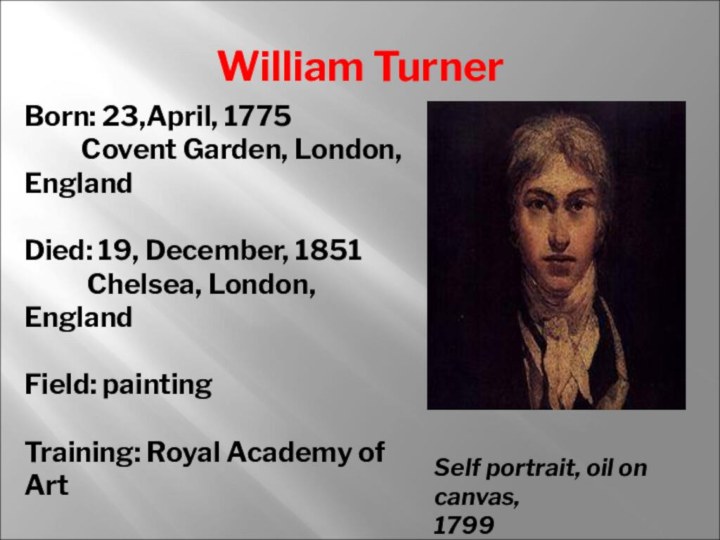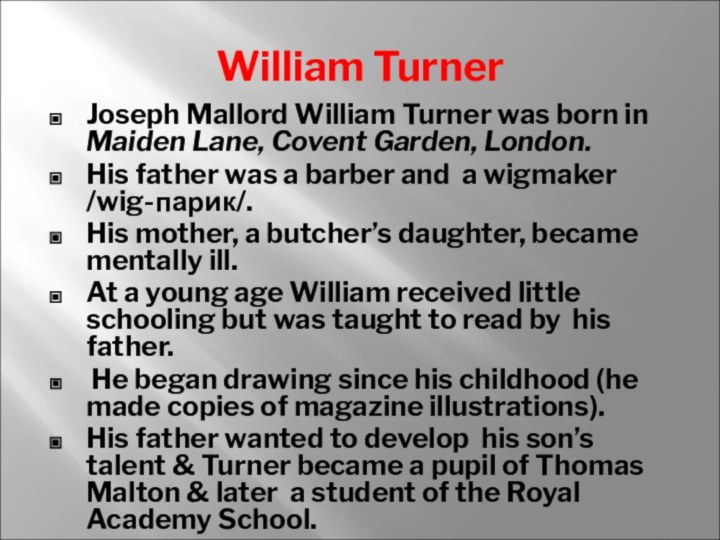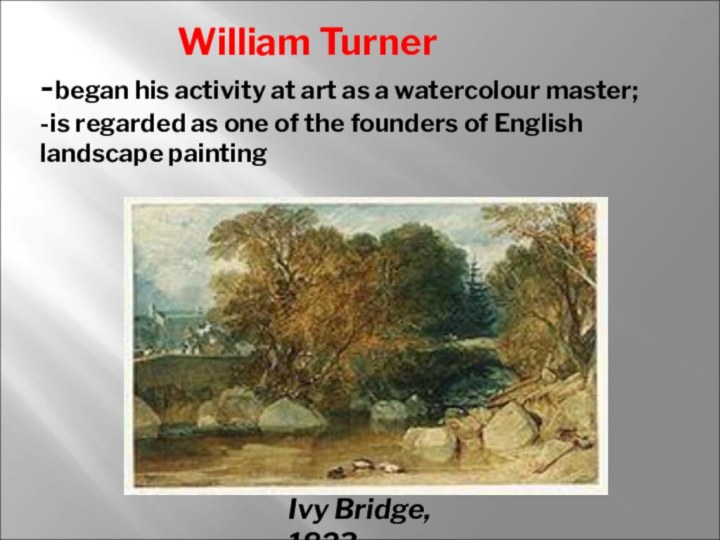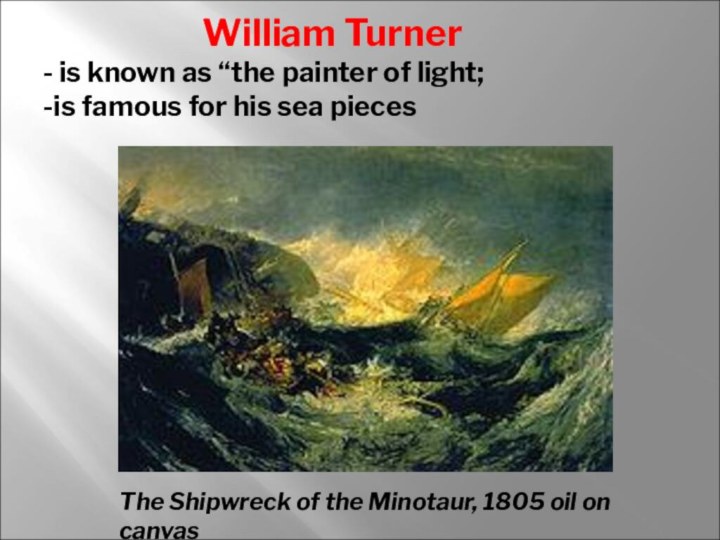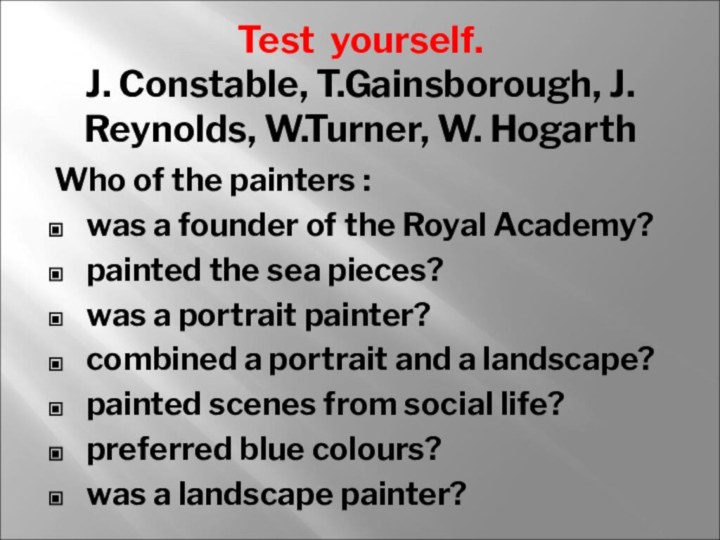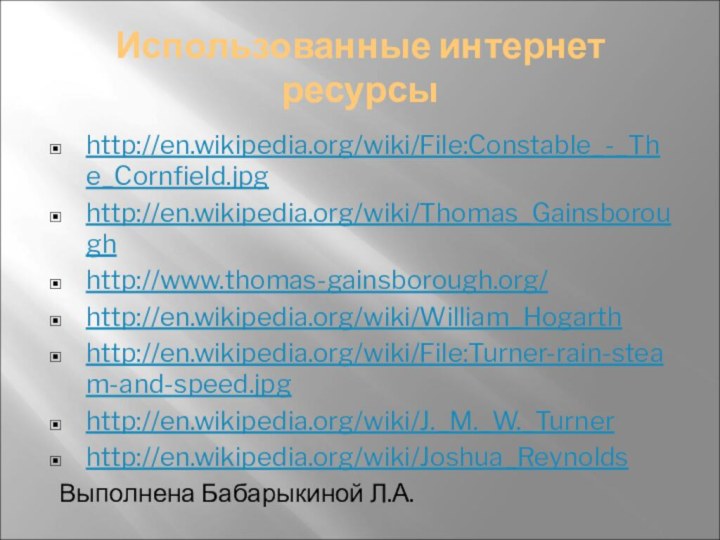Слайд 2
William Hogarth
William Hogarth,
Painter and his Pug, 1745
Born:
10, November, 1697
London, England
Died:
26, October, 1764
London, England
Occupation: painter, engraver,
satirrst
Слайд 3
William Hogarth
An early print,1724
A Just view of the
British stage
was born in London in the family of
a poor Latin school teacher& a textbook writer;
didn’t like to learn but liked to paint;
became a pupil of an engraver;
studied in the art school of Sir James Thornhill;
took an interest in the street life of London fairs;
sketched the characters he saw
Слайд 4
William Hogarth
The Assembly at Wanstead House
From 1728-1732 he
turned his attention
to the production of small “conversation
pieces”.
He reflected all aspects of life & culture in his story pictures.
Слайд 5
Marriage a-la-mode
Scene 1 The Marriage Settlement.
Слайд 6
Marriage a-la-mode
Scene 2. The tete a tete.
Слайд 7
Marriage a-la-mode
Scene 3. The Inspection
Слайд 8
Marriage a-la-mode
Scene 4. The Toilette.
Слайд 9
Marriage a-la-mode
Scene 5. The Bagnio.
Слайд 10
Marriage a-la-mode
Scene 6. The Lady’s Death
Слайд 11
William Hogarth -a portrait painter
The Shrimp Girl, 1740-1745
Portrait
of Captain Thomas Coran,
1740
Слайд 12
Sir Joshua Reynolds
Self-portrait
Born: 16, July, 1723
Devonshire, England
Died: 23, February, 1792
London, England
Field: Painting
Movement: a portrait painter
Слайд 13
Sir Joshua Reynolds
the son of the village school-master;
was
educated by his father;
studied art under Thomas Hudson, the
fashionable portrait painter;
was one of the founders & the first president of the Royal Academy;
King George III appreciated his merits & knighted him in 1769;
Слайд 14
Sir Joshua Reynolds
painted more than 2000 portraits (outstanding
people of that time);
idealised the faces of the sitters,
but they didn’t lose the likeness;
introduced mythological or allegorical overtones (намёк, подтекст)
Lord Keppel, 1779
Слайд 15
Sir Joshua Reynolds
Captain Robert Orme
The Portrait of the
Actress
Sarah Siddons
Слайд 16
Thomas Gainsborough
Self-portrait, 1759
Born: 14, May, 1727
Sudbury, Suffolk,
Great Britain
Died: 2, August
Occupation: a portrait and
landscape painter
Слайд 17
Thomas Gainsborough
was the youngest son of John Gainsborough,
a weaver & a maker of woolen goods;
parents approved
his desire to draw;
at the age of 13 he was sent to London to study art;
first he trained under the engraver Hubert Gravelot;
eventually became associated with William Hogarth and his school;
Слайд 18
Thomas Gainsborough
The Harvest Wagon,
1767
Sunset, 1760
He began with painting
landscapes, but they were not well sold. So later
he concentrated on portrait painting.
Слайд 19
Thomas Gainsborough
connected a man with nature;
created a form
of art in which the sitters & the background
merge into a single whole.
Mr. & Mrs. Andrews, 1748-49
Слайд 20
Thomas Gainsborough
famous for the truth & elegance of
his portraits and for the simple beauty of his
landscapes
The Painter’s daughters Chasing a butterfly
Mrs. Richard Brinsley Sheridan, 1785-86
Mr. & Mrs. William Hallet, 1785
Слайд 21
Thomas Gainsborough
famous for so-called “Blue Portraits;
his blue
colours are expressive & unusual;
it’s a combination of tones
such as silver, mother-of-perl, lilac, pink
Mrs. Sara Siddons, 1785
The Blue Boy, 1770
Lady in Blue, 1770
Слайд 22
John Constable
Self-portrait 1806, pencil on paper, Tate Gallery
London. His only self-portrait, drawn by an arrangement of
mirrors.[1]
Born: 11, June, 1776
Suffolk, East England
Died: 31,March, 1837
London, England
Field: Painting
Movement: Romantism
Слайд 23
John Constable
was born in East Bergholt, a village
on the river Stour;
his father was a wealthy corn
mercant &
an owner of Flatford Mill and Dedham Mill;
working on a mill, he observed changes in the weather;
reflected nature’s colours in sketches and then into pictures;
in 1799 – a student of the royal Academy & in a few years’ time he exhibited his finest pictures which were great success.
Слайд 24
John Constable Dedham Vale (1802)
was fond of
his birthplace;
almost all his pictures were painted in one
and the same place;
learnt about the atmospheric changes, the influence of light & the weather;
painted landscapes without changes, true to life;
Слайд 25
John Constable The Hay Wain (1821)
An
oil on canvas. It shows a hay wain near
Flatford Mill
on the river Stour in Suffolk
Слайд 26
John Constable
The Cornfield, 1824
a typical view of
the English rural landscape
Слайд 27
William Turner
Self portrait, oil on canvas,
1799
Born: 23,April,
1775
Covent Garden, London,
England
Died: 19, December, 1851
Chelsea, London, England
Field: painting
Training: Royal Academy of Art
Movement; Romantism
Слайд 28
William Turner
Joseph Mallord William Turner was born in
Maiden Lane, Covent Garden, London.
His father was a barber
and a wigmaker /wig-парик/.
His mother, a butcher’s daughter, became mentally ill.
At a young age William received little schooling but was taught to read by his father.
He began drawing since his childhood (he made copies of magazine illustrations).
His father wanted to develop his son’s talent & Turner became a pupil of Thomas Malton & later a student of the Royal Academy School.
William Turner
-began his activity at art as a
watercolour master;
-is regarded as one of the founders of English landscape painting
Ivy Bridge, 1823
William Turner
- is known as “the
painter of light;
-is famous for his sea pieces
The Shipwreck of the Minotaur, 1805 oil on canvas
Слайд 31
William Turner
The Battle of Traffalgar, 1806
Слайд 32
William Turner
Rain, Steam and Speed, 1844
worked on the
colour interrelation
Слайд 33
Test yourself.
J. Constable, T.Gainsborough, J. Reynolds, W.Turner, W.
Hogarth
Who of the painters :
was a founder of
the Royal Academy?
painted the sea pieces?
was a portrait painter?
combined a portrait and a landscape?
painted scenes from social life?
preferred blue colours?
was a landscape painter?
